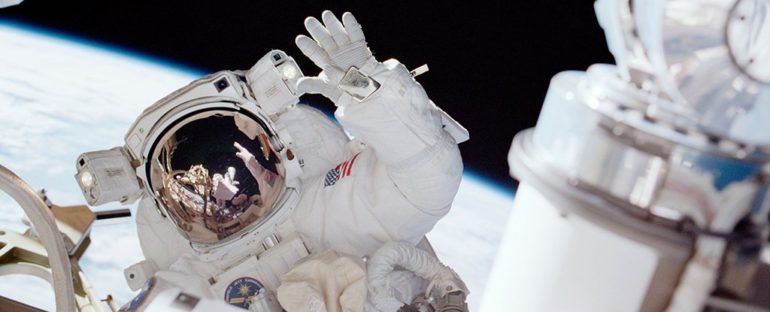As a species we haven’t been exploring space for very long, and scientists are only just beginning to understand the potential health impacts. Now a new study highlights a major problem that might come from extended periods away from Earth: damage to the brain.
Through an analysis of blood samples taken from five cosmonauts before and after extended stays on the International Space Station (ISS) – each spending an average of 169 days in orbit – researchers observed elevated concentrations of three biomarkers linked to brain damage after the return to Earth.
Previous studies have raised some questions about space travel and brain deterioration, including decreased cortical volume or brain shrinkage. This is one of the clearest signs yet that there’s an issue that needs further investigation.
“This is the first time that concrete proof of brain-cell damage has been documented in blood tests following space flights,” says neuroscientist Henrik Zetterberg from the University of Gothenburg in Sweden.
“This must be explored further and prevented if space travel is to become more common in the future.”
The biomarkers the study looked at were neurofilament light (NFL), glial fibrillary acidic protein (GFAP), total tau (T-tau), and two amyloid beta proteins. NFL, GFAP, and the amyloid beta protein Aβ40 were the biomarkers that were elevated after a prolonged stay in orbit on the ISS.
While it’s not clear to what extent the brains of the cosmonauts might be damaged – if they’re damaged at all, that is – these biomarkers have been comprehensively linked across multiple studies to neurological disorders in the past.
Magnetic resonance (MRI) scans and clinical tests of the cosmonauts’ brains back up the idea that brain function could be affected by a space trip, but the research is still at an early stage. More data from more people will be required to figure out exactly how and why time in space affects the brain negatively.
“If we can sort out what causes the damage, the biomarkers we’ve developed may help us find out how best to remedy the problem,” says Zetterberg.
While the peak readings varied between individuals, the broad trends of biomarker elevation were the same across all the cosmonauts. That three biomarkers all showed similar changes is another indication of a substantial increase in risk.
This small study doesn’t go into why these changes in the brain might be happening – with just a handful of people in space at any one time, it continues to be difficult for researchers to gather a broad enough set of results to make any detailed conclusions about the health risks of space travel.
But we don’t necessarily have to stick to cosmonauts and astronauts for studies. Researchers are continually conducting experiments on Earth designed to replicate at least some of the more stressful conditions of space travel without us ever having to leave the surface.
“We must help one another to find out why the damage arises,” says Zetteberg.
“Is it being weightless, changes in brain fluid, or stressors associated with launch and landing, or is it caused by something else? Here, loads of exciting experimental studies on humans can be done on Earth.”
The research has been published in JAMA Neurology.



